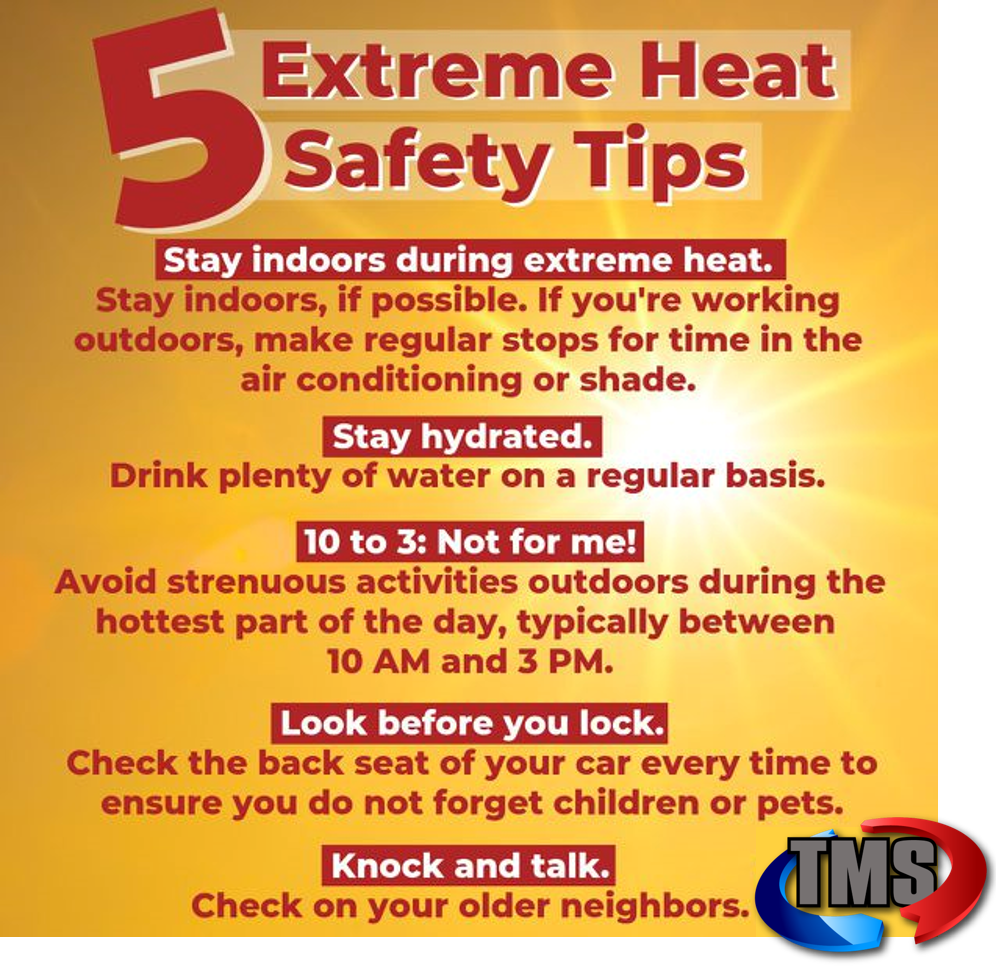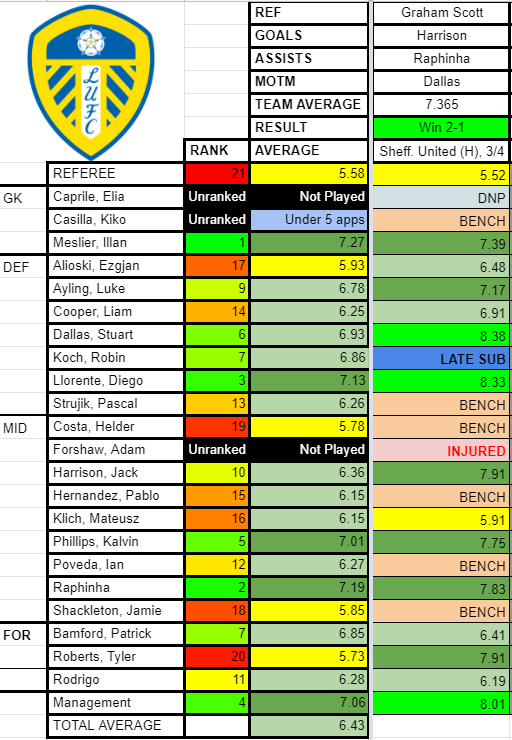Health Advisory Issued: Stay Safe During Extreme Heat

Table of Contents
Recognizing the Risks of Extreme Heat
Extreme heat poses significant health risks, particularly for vulnerable populations. Understanding the dangers and recognizing the symptoms of heat-related illnesses is crucial for preventing serious complications. The most severe is heat stroke, but heat exhaustion and heat cramps are also serious concerns.
-
Heat Stroke: This is a life-threatening condition characterized by a dangerously high body temperature (above 103°F or 39.4°C), often accompanied by confusion, seizures, loss of consciousness, and rapid pulse. Heat stroke symptoms require immediate medical attention.
-
Heat Exhaustion: Heat exhaustion symptoms often precede heat stroke and include heavy sweating, weakness, dizziness, headache, nausea, vomiting, and muscle cramps. While less severe than heat stroke, it still requires prompt treatment and rest.
-
Heat Cramps: These are painful muscle spasms that typically occur during or after strenuous activity in hot weather. They are often a sign of dehydration and electrolyte imbalance.
Vulnerable Populations: Certain groups are more susceptible to the effects of extreme heat, including:
- Elderly individuals: Their bodies may not regulate temperature as efficiently.
- Young children: Their bodies are still developing and less adept at regulating temperature.
- People with chronic illnesses: Conditions like heart disease, diabetes, and respiratory illnesses can exacerbate the effects of heat.
- Individuals who are overweight or obese: Excess body fat can make it harder to cool down.
- Those taking certain medications: Some medications can interfere with the body's ability to regulate temperature.
Increased risk factors for heat-related illnesses include high humidity, which hinders the body's ability to cool through sweating, and lack of access to air conditioning. Understanding these risk factors and vulnerable populations is crucial for effective heat exhaustion prevention.
Protective Measures Against Extreme Heat
Staying safe during periods of extreme heat requires proactive measures focused on staying cool and hydrated. Here are some essential heat safety tips:
-
Hydration is key: Drink plenty of water throughout the day, even before feeling thirsty. Avoid sugary drinks and excessive alcohol, as they can dehydrate you further.
-
Limit strenuous activity: Avoid strenuous outdoor activities during peak heat hours (typically 10 am to 4 pm). If you must go out, take frequent breaks in shaded or air-conditioned areas.
-
Dress appropriately: Wear lightweight, light-colored, and loose-fitting clothing to reflect sunlight and allow for better air circulation.
-
Seek air conditioning: Spend time in air-conditioned spaces regularly, such as libraries, shopping malls, or community centers.
-
Use fans strategically: While fans don't lower the air temperature, they can help increase air circulation and provide a cooling effect.
-
Cool down regularly: Take cool showers or baths, or apply cool compresses to your skin.
-
Never leave anyone unattended in a vehicle: Cars can become dangerously hot in a short amount of time, even on mildly warm days. Never leave children or pets unattended in vehicles, even for a few minutes.
These heatwave precautions can significantly reduce your risk of heat-related illnesses. Remember to beat the heat by actively implementing these strategies.
Responding to Heat-Related Illnesses
Knowing how to respond to heat-related illnesses is critical. If someone shows symptoms, act quickly:
-
Immediate action: Move the person to a cool place, such as a shaded area or air-conditioned room.
-
Remove excess clothing: Loosen or remove any restrictive clothing.
-
Cool the body: Apply cool, wet cloths to the skin, especially the forehead, neck, and groin.
-
Improve air circulation: Fan the person gently.
-
Hydration (if conscious): Offer small sips of cool water. Avoid giving large amounts of water at once.
-
Seek medical attention immediately: Call emergency services (911 or your local equivalent) if symptoms are severe, worsen, or include loss of consciousness. Prompt heat stroke treatment is crucial.
Remember, for severe cases like heat stroke, immediate emergency response is vital. Early intervention can be life-saving.
Staying Informed During Extreme Heat
Staying informed is crucial for protecting yourself during extreme heat.
-
Monitor weather forecasts: Regularly check weather forecasts and heat advisories from reliable sources, such as the National Weather Service or your local news.
-
Utilize reliable sources: Use reputable weather apps and public health websites for up-to-date information on heat advisories and safety guidelines.
-
Community support: Check on vulnerable neighbors, family members, and friends, especially the elderly and those living alone.
By staying vigilant and informed, you can effectively prepare for and mitigate the risks associated with extreme heat and improve community heatwave preparedness.
Conclusion
This health advisory emphasizes the serious dangers posed by extreme heat. By following these protective measures, recognizing the signs of heat-related illnesses, and responding appropriately, you can significantly reduce your risk and keep yourself and your loved ones safe. Remember to stay informed about the weather and take preventative actions to combat the extreme heat. Stay vigilant, stay safe, and stay informed about ongoing extreme heat advisories. Take action today to protect yourself and your community from the dangers of extreme heat.

Featured Posts
-
 Leeds Vs Sheffield United Red Card Controversy Sparks Debate
May 13, 2025
Leeds Vs Sheffield United Red Card Controversy Sparks Debate
May 13, 2025 -
 L Avenir De Gibraltar Perspectives Sur L Accord Post Brexit
May 13, 2025
L Avenir De Gibraltar Perspectives Sur L Accord Post Brexit
May 13, 2025 -
 Gauff Falls Short Sabalenka Triumphs At Madrid Open
May 13, 2025
Gauff Falls Short Sabalenka Triumphs At Madrid Open
May 13, 2025 -
 Protecting Childrens Privacy Scarlett Johanssons Stance On Anonymity
May 13, 2025
Protecting Childrens Privacy Scarlett Johanssons Stance On Anonymity
May 13, 2025 -
 I Gymni Panigyriki Stigmi Toy Tzortz Mpalntok Meta To Thriamvo Tis Sefilnt Gioynaitent
May 13, 2025
I Gymni Panigyriki Stigmi Toy Tzortz Mpalntok Meta To Thriamvo Tis Sefilnt Gioynaitent
May 13, 2025
